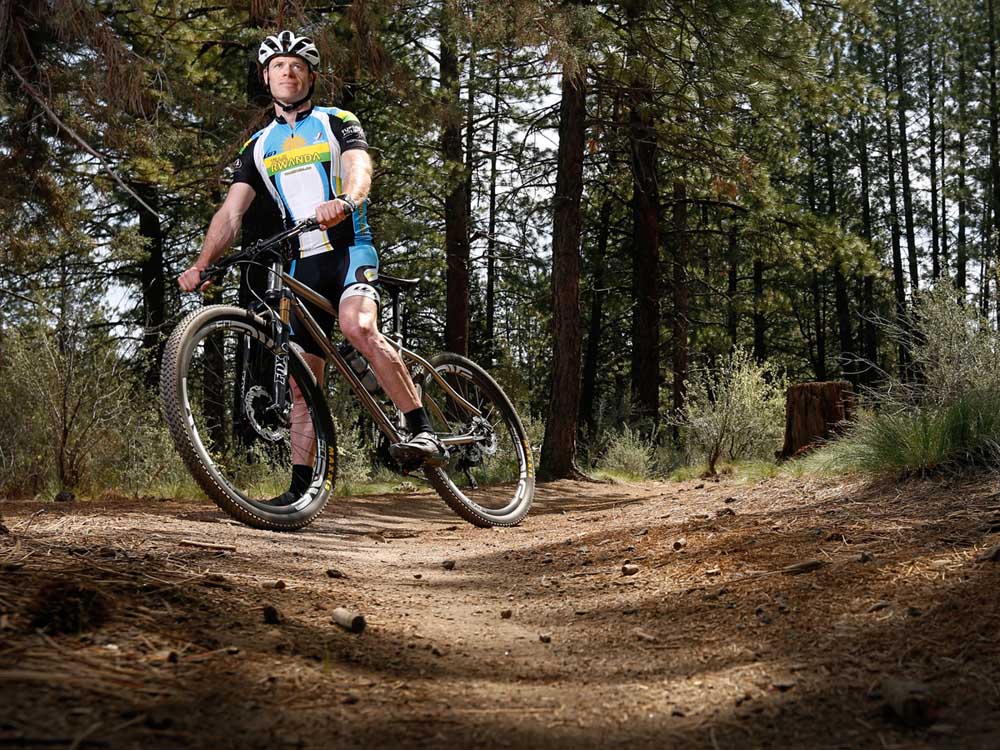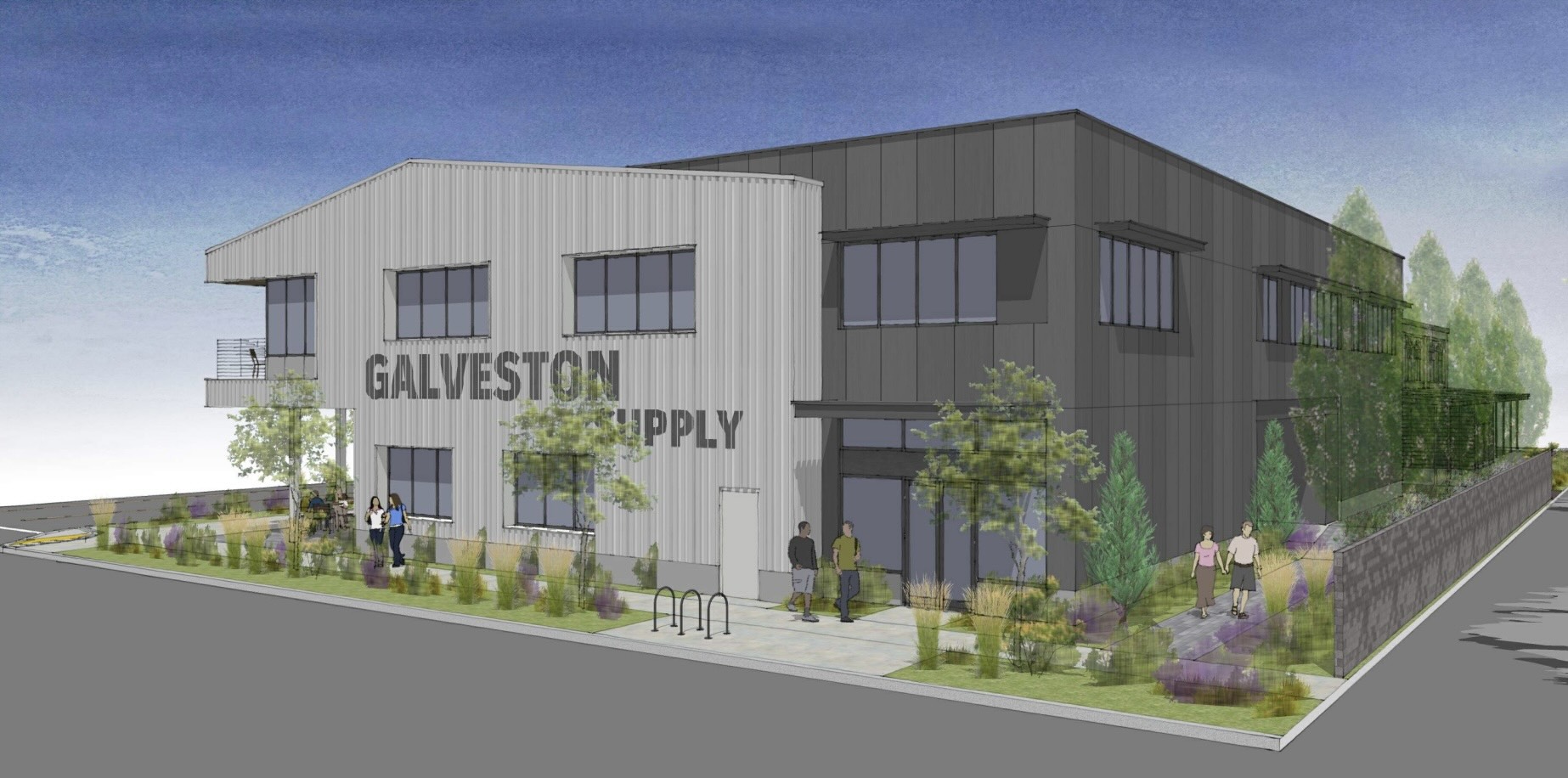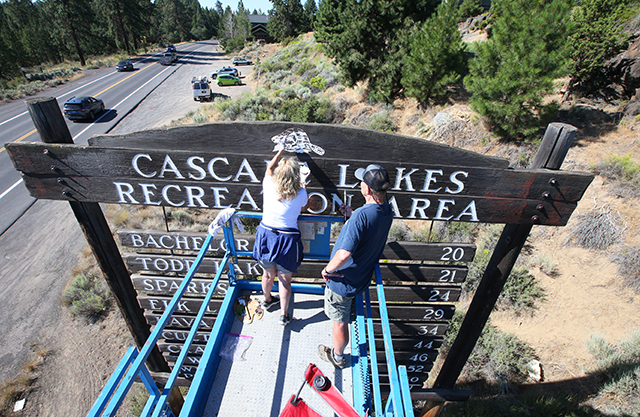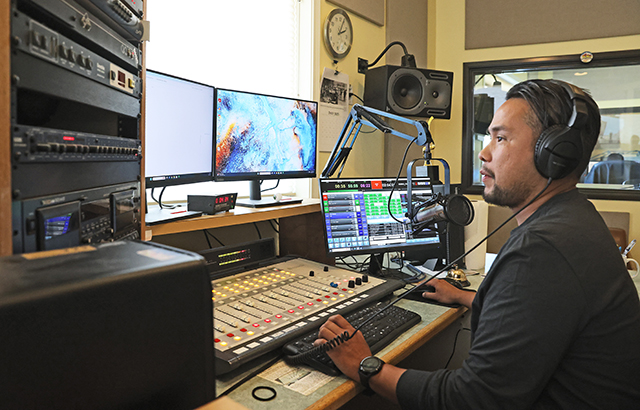Bend mountain biker helps out Rwanda
Published 12:00 am Monday, May 16, 2016

- Joe Kline / The Bulletin Pro mountain bike racer Adam Bucklin, shown at Phil’s Trail complex in Bend, is an honorary member of Team Rwanda and rides in support of the team. He donates winnings and sales to the team, which he has supported after he watched the movie, “Rising from Ashes” in April and was moved by the story.
When Adam Bucklin first discovered “Rising from Ashes,” a 2012 documentary about the founding of the Rwandan national cycling team, he was just looking through his Netflix account, searching for something to entertain him for 15 minutes while he ate his lunch.
“I thought, well, let’s see what this is,” said Bucklin, a 40-year-old cyclist who lives in Bend. “I’d never heard of it, so I didn’t give it much credit. I started eating lunch and was glued to it.”
Trending
Bucklin, who first watched the documentary in March, said he was hooked by footage of the first bicycle race held in Rwanda after the 1994 genocide, in which many of the competitors raced on clunky wooden bikes or decades-old steel frames. Since cars are relatively rare in Rwanda, some of the cyclists had to ride 60 kilometers just to get to the start line.
“It was just a true enjoyment of the sport for what it is,” Bucklin said. “The equipment didn’t matter, the results didn’t matter. A few of them clearly wanted to do well, but it’s not like they trained, they just showed up. There were no hidden agendas whatsoever.”
Bucklin said he had long suspected some of the world’s most naturally gifted athletes never had the chance to take up cycling because they do not have access to the high-tech (and expensive) equipment and training necessary to be a competitive cyclist. This hunch was based in part on his own experience: Bucklin took up mountain biking in college, and as a young cyclist living in New England he tried to finance his mountain biking career with his salary as a carpenter. Over the next few years, he noticed many of his competitors were far ahead of him in terms of coaching (he had none), training (as he put it, “I had a heart-rate monitor, but wasn’t really sure what we were doing with them”) and, ultimately, results.
He and his training partners would smoke the field in races on the East Coast, but when they competed against professional cyclists at altitude in the West they would finish in the bottom five.
“I never had the best equipment — I raced on used equipment,” Bucklin said. “All my money went to food and bike parts.
“At that point, it was like I could either quit my job as a carpenter and move to Colorado and work at a coffee shop part-time and ride all the time if I want to get better, or stop.”
Trending
He stopped racing.
Bucklin continued working as a carpenter while his now-wife, Cloe Shelton, finished medical school, and the couple moved around the country as she completed her residency and fellowship in radiology. After their children Alex and Lily were born in 2008 and 2010, respectively, Bucklin became a stay-at-home dad. In 2012, Shelton got a job in Bend, and the family moved to Oregon.
“That was really hard for me, to go from being a carpenter, dirt bike riding and mountain biking to staying home all day,” Bucklin said.
So once his children were old enough to start preschool, Bucklin jumped back into mountain biking, this time with the extra income and stretches of free time he wished for during his 20s.
“I was 39 when I decided to start racing again, and I still had no idea how to train to race at the professional level,” Bucklin said. “So I hired a coach, Tim Cusick, who really knows what he’s doing, and at this point I’m like a robot. I didn’t want to have any excuses; in bike racing, a lot of people have excuses, and I don’t have any. I follow my training like a recipe, and it’s working.”
Bucklin won the Cascade Chainbreaker in Bend on May 7, but said he is planning to end his “comeback tour” after the 2017 season, about the time that his children will likely become more involved in sports and activities of their own. Bucklin said he had wanted to find a way to give back to the sport before hanging up his bike shoes for the second time — and when he saw “Rising from Ashes,” he knew that was the project he wanted to be a part of.
Team Africa Rising, which supports the Rwandan national team as well as cyclists in Ethiopia and Eritrea, accepts donations and sells gear on its website, but Kimberly Coats, the organization’s director of marketing and logistics in Rwanda, said Bucklin was the first cyclist to contact her and ask to race on behalf of Team Rwanda at local races.
“He sent me an email saying he wanted to wear the kit while he was racing to promote Team Rwanda, and I was like, that’s a fabulous idea,” said Coats. “He’s getting (Team Rwanda) out there, and people are asking him questions, which is really what we need. Even though we do a good job on social media of trying to keep the team at the forefront, they are so many people who are like, ‘I’ve never heard of them. Never heard of the movie.’”
This season, Bucklin will compete in races as an honorary member of Team Rwanda, with any prize winnings or other cycling-related income going to Team Africa Rising. Coats said Bucklin has already raised about $2,000 for the organization.
Although there are still relatively few cycling races held in Rwanda each year, a number of Rwandan team members have made their way onto the world stage. Adrien Niyonshuti, for example, served as the Rwandan flag bearer at the 2012 Olympic Games in London and became the first black athlete to finish the Olympic mountain bike cross country race. Nathan Byukusenge, one of the original Team Rwanda members, has qualified for the same event at this summer’s Olympic Games, and many other Rwandans are competing around the world on UCI teams such as Team Dimension Data, which is based in South Africa. Jean D’arc Girubuntu, a 21-year-old who recently became Team Rwanda’s first female cyclist, is currently training in Switzerland.
But funding for Team Rwanda often falls short. In addition to paying salaries to the cyclists and the support staff, which includes coaches and mechanics, the organization needs money to feed the riders and pay medical bills. One team member, Patrick Byukusenge, crashed and broke his collarbone on Saturday and is undergoing surgery to correct the injury in the capital city of Kigali today.
“If we had more money, we would have more coaches, and I could test more riders and get more riders into the system,” Coats said. “Every year, I’m like, we’re not going to make it this year, there’s no way, we’re going to run out of money. But every year we make it.”
Becoming a member of the Rwandan cycling team is not just a great opportunity to compete, it also represents a massive change in circumstances for most Rwandans. Take medical care: none of the team members had been to a dentist before joining the team. Team Rwanda recently started an eye program, and the optometrist discovered one of their top riders had been living (and racing) with impaired vision for years, but had never had the opportunity to get glasses or contacts.
Bucklin said he was intrigued by the Rwandan team because he thought that, with the proper support, they could show that the pool of talented cyclists is not limited to wealthy people born in wealthy nations. And while that has been one byproduct of the cyclists’ success, Coats said the Rwanda team — many of whom were small children during the 1994 genocide — also see cycling as a way to improve the image of their nation around the world.
“When you say Rwanda, people still think genocide,” Coats said. “Our riders, they’re always interviewed and asked about the genocide, and what they always say is that they want Rwanda to be known as a land of cycling, and not for all the bad of the past. So they see themselves as ambassadors of a new Rwanda and proof that people from different backgrounds can come together and race as one team.”
—Reporter: 541-383-0305, vjacobsen@bendbulletin.com







